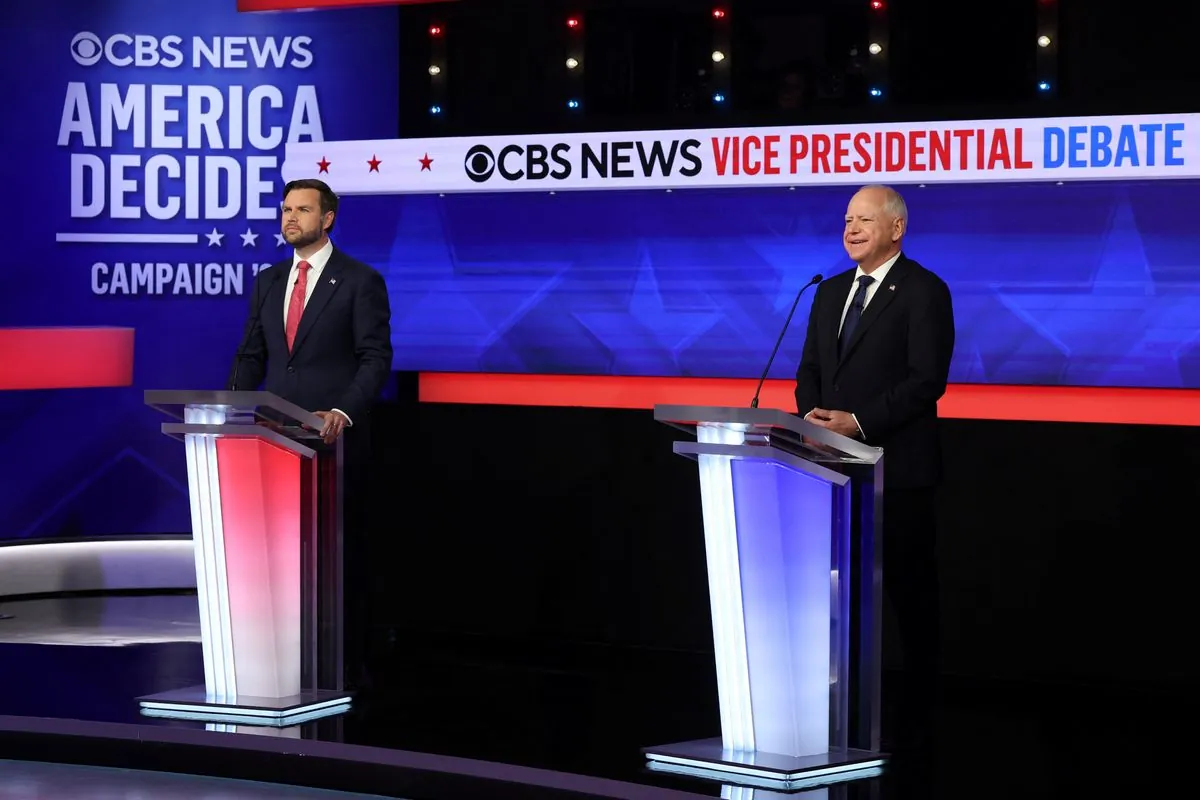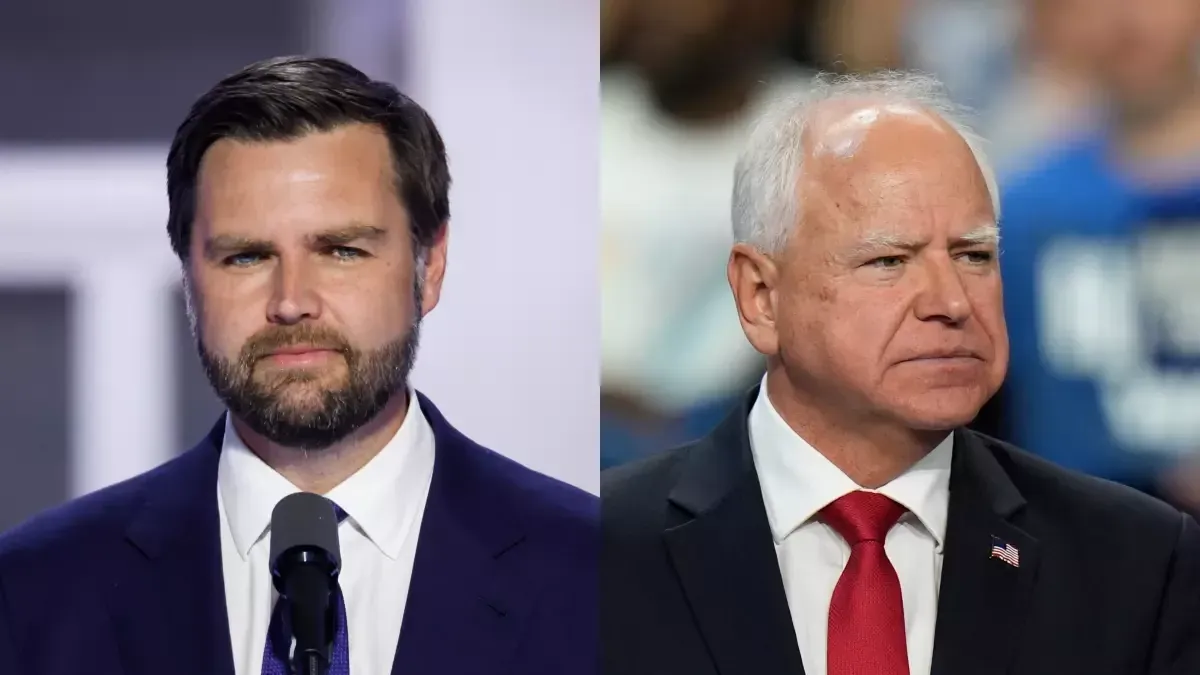Walz and Vance Clash in Final 2024 VP Debate Amid Global Tensions
Vice presidential candidates Tim Walz and JD Vance faced off in a debate focusing on foreign policy, climate change, and immigration. The encounter highlighted stark contrasts between the Democratic and Republican tickets.

On October 1, 2024, Tim Walz and JD Vance engaged in what may be the final debate of the 2024 U.S. presidential campaign. This encounter between Minnesota's Democratic governor and Ohio's Republican senator followed the September debate between their running mates, Vice President Kamala Harris and former President Donald Trump.
The debate occurred against a backdrop of heightened global tensions, with Iran launching missiles at Israel just hours before. This event underscored the importance of the vice presidential role, as the second-highest executive officer in the U.S. government often plays a crucial part in foreign policy decisions.
Addressing the Middle East situation, Walz emphasized the need for "steady leadership" under a Harris administration, while Vance advocated for a return to "peace through strength" if Trump were to regain the White House. This concept, often attributed to President Ronald Reagan, reflects the Republican stance on international relations.

The candidates' approaches to climate change revealed divergent strategies. Vance linked environmental issues to domestic manufacturing, suggesting that U.S. production could combat global warming due to the country's clean energy economy. Walz, on the other hand, highlighted the Biden administration's renewable energy investments and record levels of oil and natural gas production, positioning the U.S. as a potential "energy superpower."
"You can see us becoming an energy superpower in the future."
It's worth noting that the U.S. withdrew from the Paris Agreement in 2020 but rejoined in 2021, demonstrating the impact of changing administrations on international climate commitments.
Immigration emerged as a contentious topic, with both candidates acknowledging the issue's complexity. The U.S.-Mexico border, spanning approximately 1,954 miles, has long been a focal point of political debate. Vance criticized Harris's role in addressing migration, referring to her as the "border czar" – an informal title not officially recognized in government. Walz countered by highlighting Trump's alleged role in derailing a bipartisan Senate agreement on border security.
Throughout the debate, both Walz and Vance directed their critiques primarily at the presidential candidates rather than each other. This strategy aligns with the historical role of vice presidential nominees as "attack dogs" for their running mates.
As the 2024 election approaches, it's important to remember that while vice presidential debates offer insights into the candidates' positions, they typically attract less attention than presidential debates. Ultimately, the Electoral College, not the popular vote, will determine the outcome of this pivotal election.


































